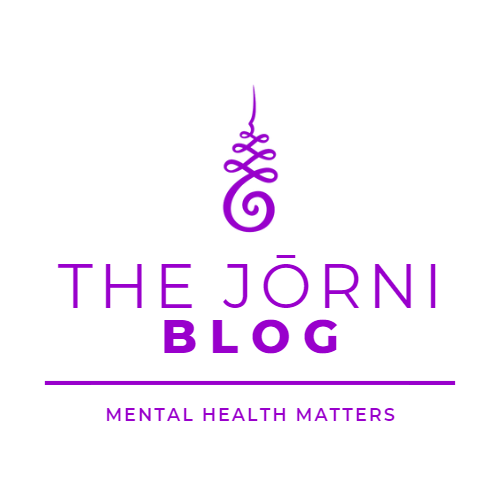
Could exercise be the simple solution?
Exercising to survive.
It’s probably not news to you that exercise can help with treating mild to medium depression and anxiety. There have been many studies researching this topic. These studies have shown that physical exercise increases neurotransmitters.
Simply put, neurotransmitters are chemical messengers that help transmit signals in your body. As such, they are vital to daily functions. People with depression often have low levels of neurotransmitters, and neurotransmitter have something to do with how depression happens.

Since exercise increases neurotransmitter levels, it can help relieve depression. Sometimes, a set exercise schedule can help with depression on its own, for instance. Other times, it can help in combination with other methods, such as medication.
If exercise can be so effective in counteracting mild to medium depression and anxiety, why isn’t it more widely recommended and used as a treatment?
For me, the answer was my own inability to exercise.
From track & field star to exercise void
Rewind to my teenage years. I was quite active and did a lot of sports. I participated in track and field, skiing, and spent a lot of time outside with my friends. We were always encouraged to play outside and get plenty of fresh air.
Although there was a school bus, we rode our bikes to school, rain or shine. On weekends, we visited my grandparents in the Alps and got in some hiking and long walks with the family.
After the move to Canada, my activity levels drastically decreased. I dealt with recurring knee and ankle injuries. As a result, it was harder to ride my bike or participate in any high impact sports. In addition, I also got very busy with school.
Preparing for exams and planning for graduation and university took up most of my spare time. Exercise fell by the wayside and the final years before graduating, I didn’t even have to take Physical Education anymore.
“Exercise is such an effective treatment for depression that depression could be framed as a lack of physical activity.”
- Dr. Daniel Clauw
Creating busyness to stay afloat
As things spiraled out of control for me, I am sure that the decreased physical activity contributed to my depression coming on so fast. Most of my days consisted of studying and finishing assignments, for instance.
I became Miss Cranbrook (Sweetheart of Sam Steele) in grade 11, but the year representing the city was very stressful with lots of travelling and did not encompass doing any exercise or sports. As a result, I fell deeper and deeper into the depression spiral.
After graduation I was signed up to attend university in Vancouver. I was mentally and physically so drained that I made the immensely difficult decision to stay at home with my parents instead. I set up a combination of courses online and through the local college and made sure I would be able to transfer those credits to university after.


Handling study stress ineffectively
The first few weeks went well, until the bottom fell out. Depression had me very firmly in its grasp and try as I might, I was not able to attend any classes or complete any online work. I went on indefinite leave and paused my online courses entirely.
My dream of studying and earning my degree was slowly going down the drain. And all I was able to do was watch it fall apart.
I worked with my family doctor to receive help and on top of medication and therapy she urged me to exercise and get physically active again. After spending nearly a year battling depression, I definitely understood the importance of her advice; however, when getting out of bed took half the day and drained my energy completely, how was I supposed to exercise? Just the thought of it sent me back to bed.
The very thing that could have helped me get better was the one thing I was not able to do.
I became more and more frustrated with myself and my inability to exercise. My doctor encouraged me to join a gym or a walking group. Being with a crowd was the very last thing on my mind. The thought of having to see people and talk to them gave me panic attacks. I was not even able to sleep and shower reliably, so I wasn’t sure exactly how I would be able to show up for something consistently a few times per week.
Underestimating the inability to move
At the time, I had the best of intentions of getting this exercise thing sorted. But then I could not get out of bed. I was too exhausted to shower and get ready. It was not possible for me to drive (I got so confused at times that I couldn’t remember where places were) and nobody was available to drive me. Somewhere deep down I knew that I had to do better, but I simply was in no state to do so.

I think everybody underestimated how mentally and physically difficult it would be for me to exercise. For someone without depression, it is just something to overcome. They stick it out. They get someone to push them to get it done.
With depression, those things would have just served to drive me deeper into my depression and really throw the fact that I could not do it in my face. I already felt inadequate and useless. Knowing I couldn’t even exercise made things so much worse.
And the worst thing was that everyone thought I was just too lazy to get out and get moving.
In reality, I was physically and mentally just not able to do it. It was a toxic cocktail of fear, depression, anxiety, exhaustion, brain fog, numbness, soreness, and aches all over my body that made it impossible at the time. That’s what depression does and there was no getting around it.

What can you do, when you cannot exercise?
I did find sneaky ways to succeed and you can too. The biggest stumbling block at first was exhaustion. I was not able to sustain any kind of exercise for a prolonged time because I was always tired. The second biggest stumbling block was isolation. The mere thought of having to face people was unbearable for me and sent me into a panic attack.
This might make you smile. I decided that since I could not really exercise, I would start with cheat exercises.

The first cheat exercise idea
The first kind could be done in bed and they weren’t really exercises at all. But, they served the purpose that I moved and in my mind, it created something I had to do a set amount of times per week. Having this routine was a very good thing.
What to do:
The second cheat exercise idea
The second kind of exercise was something designed for elderly people and can be done - yep - on a chair. I found a senior chair workout DVD and bought it. A few times a week, whenever I had moments where I felt a little better, I would grab a chair and tune into the exercises. It was pretty entertaining to start with, but hey, I felt like I accomplished something.
What to do:
I was able to do the exercises on my own, in the comfort of my parents’ house. I didn’t have to shower or change out of my pajamas. It was as easy as getting on the chair and then rolling back into bed. It was not spectacular, but the fact that I tried gave me a strange sense of satisfaction.

Continuing the first exercises
I have to admit that the exercises did not seem to do anything in the beginning. Maybe I was just not consistent enough. More likely, these things take time. One time of doing an exercise won’t make a difference.
It took a good two months before I felt just a little better and even caught myself looking forward to my chair exercises. I had unwittingly established a routine, which also helped battle my depression.

Eventually, I did begin walking with a small group of women, who were also struggling with a variety of issues and illnesses. This was after some months of moving at home though, when the thought of people didn’t quite scare me as much anymore.
I have to say that if you are able to do anything in a group, it seems to help faster. I believe this is because you are exercising and also breaking through the isolation, both of which contribute to overcoming depression. With the added bonus that exercising usually distracts you from depression for brief moments.

The long-term plan for exercising
Thinking about the fact that you will need to exercise for the rest of your life might scare you. In fact, it might scare you so much that you won't even get started. If that is the case for you right now, here is something to consider.
At the moment, just like I did, you are assuming that your depression will stay the same. You are convinced that the way you feel now is the way you will always feel. And you are correct that in your current state, exercising might be a chore and something you cannot do on a consistent basis.

Re-framing depression assumptions
After all this time, I can tell you that these assumptions should be re-framed. The reason is that depression really does not stay the same. If you are starting to make changes and you are actively looking to break through your depression, your depression won't feel the same down the road as it does now.
Exercise was just one piece of the plan, but moving even just a few times per week helped a lot. It made me feel clearer and more able to make decisions. It also gave me just a little more energy to face the day with.
Over time, exercise helped me keep the exhaustion at bay. It's a bit of an oxymoron because exercising did tire me out. But it tired me out physically and not mentally, like the depression. So, it is a good idea to keep in mind that exercise can help change the situation you are in right now. Understand that the way you feel today is not necessarily the way you will feel in a few weeks, a few months, and next year.
For now, focus on the one step you need to take today. Don't worry about what will happen later and how you will incorporate exercise into your life. At this point, thinking too far ahead is counter-productive and you just need to get your butt on that chair today.

The Takeaway
If you simply cannot exercise...
So, if you cannot exercise, but you understand that it might be beneficial, give yourself a pat on the back. Be proud of yourself for looking for solutions. This in itself is not an easy feat.
Next, don’t get scared of having to buy a gym pass and working up a sweat with a bunch of strangers five days a week. Give yourself permission to start small and at whatever level you can.
Writing air letters with your feet in bed or working out on a chair or on the ground all counts as a start. Graduating to a stretching routine or a walk around the block is next. And when you can, join a group or a gym and begin taking your life back.

Work with your body and mind. Understand that there will be resistance, as depression does not like to go quietly. But know that if you can manage to move over a few weeks, you will very likely start seeing some positive improvements.
And it’s alright to fail.
There were days and weeks where I was just not able to do any kind of exercises. I was a prisoner in my own mind and often spent days in bed. This is also part of depression and you do not need to feel ashamed or defensive. Everybody’s healing journey will be different. Everyone will experience depression differently. Don’t look to anyone but yourself for setting the pace.

I know that believing in yourself is one of the hardest things to do. I am here to cheer you on and tell you that a depression breakthrough is possible. Here’s to hope, healing, and the air alphabet!
Sources

